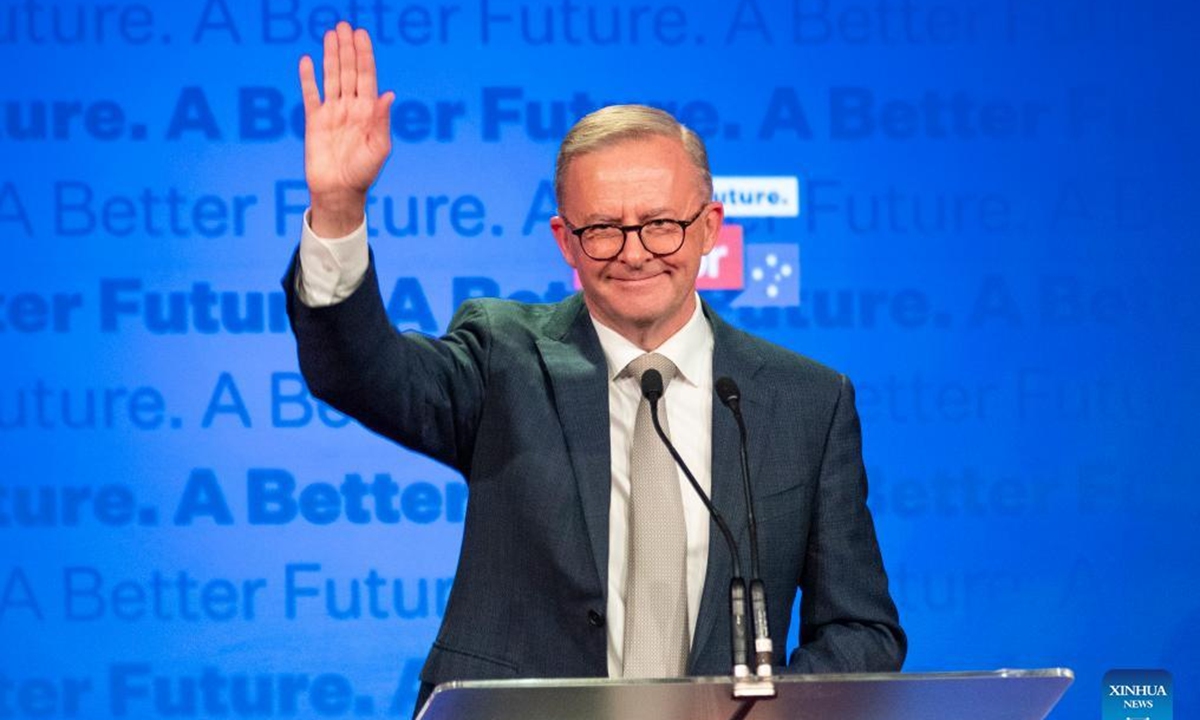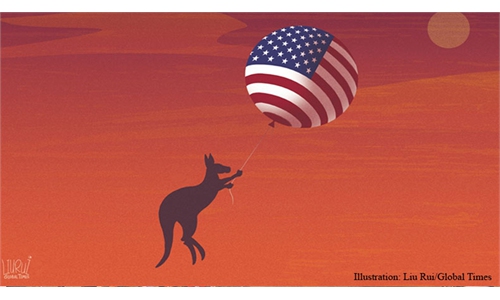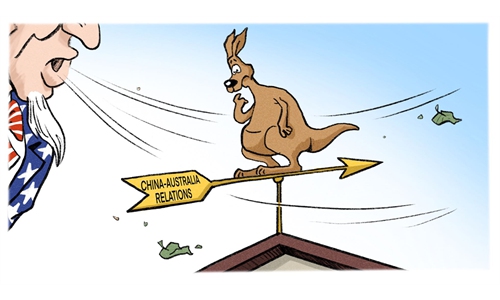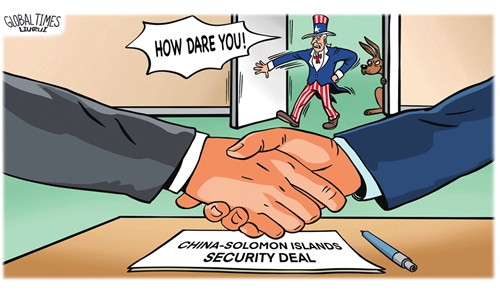Hope Canberra can regain its rationality toward China as soon as possible: Global Times editorial

Anthony Albanese gestures as addressing supporters in Sydney, Australia, May 21, 2022. Photo: Xinhua
Scott Morrison, the 30th prime minister of Australia who is termed by Bloomberg as "one of the world's most outspoken leaders in pushing back against China," lost the election on Saturday. Labor Party leader Anthony Albanese will assume office on Monday. This provides a turning point for the China-Australia relationship which is currently at a low ebb. We wish the new Australian government can bring the bilateral relationship back to the right track.Australia's sudden turn to a hawkish anti-China stance is the most inexplicable phenomenon of international relations in recent years. China and Australia are thousands of miles apart. There are no territorial disputes or historical grievances between the two countries. During the most part of the past 50 years of their diplomatic relations, neither ideological differences nor geopolitical disputes have affected the normal, mutually beneficial exchanges between the two countries. However, this stable and mutually beneficial situation had been severely damaged by the Australian side in just a couple of years, which is lamentable.
In this election, China policy was a key issue for Australia's two parties to attack each other. Morrison, in particular, put his tough stance against China at the forefront of his election campaign. However, Saturday's results once again showed that Australians care more about their government's commitment and actions on issues related to people's well-being, such as climate change, soaring prices, and wages, than the unwarranted "China threat." This can be seen as a rectification and balance within Australia for its paranoid anti-China path and its approach of blaming China as a way out of all its problems in the past few years.
In fact, long before this election, many sober voices among Western public opinion pointed out that during its "anti-China crusade," Australia has lost the strategic balance and calmness it should have had. For quite some time, Canberra has become the most active pawn of Washington's China containment strategy, and is keen to serve as an "anti-China vanguard" and win Washington's trust by provoking China for simply no reason. It has to be said that the crux of Australia's irregular diplomacy in recent years is that the lens through which it sees its national interests is skewed or even reversed, which not only hurts others by mistake but also inflicts damages on itself.
In the past 13 years, China has been Australia's largest trading partner, as well as Australia's largest export market and source of imports. However, in recent years, the Australian side has gone further and further down the road of politicizing trade and investment issues, frequently suppressing Chinese companies on the excuses of "national security." So far, Australia has launched hundreds of anti-dumping and anti-subsidy investigations against Chinese products, while China has made only a few cases against Australian products. The deplorable consequences of Australia's actions are already being felt in its economy.
It can be said that in recent years Canberra has provided the world with a negative example of how to deal with China. Even Australia's neighbor, New Zealand, of which China is also its largest trading partner, has advised the Australian government to show due respect to China. Australia and New Zealand are facing the same geopolitical environment and have similar political systems, which shows that what Canberra called "China threat" and "economic coercion" cannot stand up to scrutiny. Canberra often acts in line with Washington's playbook and assumes Washington's role in how it thinks about its China policy, but in fact Australia's national interests are quite different from those of the US.
There is no fundamental conflict of interests between China and Australia, nor are there any major historical feuds. China has always hoped that Australia can maintain its peace and prosperity. A sound economic and trade relationship with China is one of the most important foundations of Australia's prosperity, and the Indo-Pacific region's peace and stability is also where Australia's lie. All these run counter to Washington's current strategy of sustaining its hegemony by promoting regional division and confrontation. Peace and development remain the theme of today's world. The core of Australia as a sovereign country should be to safeguard the well-being of its own people.
Frankly speaking, against the backdrop that the US is ratcheting up "competition with China" and strengthening its alliance with Australia, it's not easy for Canberra to return to the "balanced diplomacy" of the John Howard period, which was a pleasant episode in Australia's diplomatic history. But in considering Australia's own interests, any Australian leader should keep the strategic sobriety to at least achieve a balance between the country's practical development and security. China's rise shouldn't be viewed by Australia as a "threat." Nor should differences in political system become an obstacle to the development of friendly ties between the two countries. Be it economic prosperity that Australians are concerned about or tackling climate change, China will definitely be a good partner.
It's noticeable that when shaping their image, Albanese and his team are underlining "rationality." We hope that the new Australian government could regain "rationality" toward China and deal with China in a "mature manner" to push the China-Australia relationship back on the right track.



